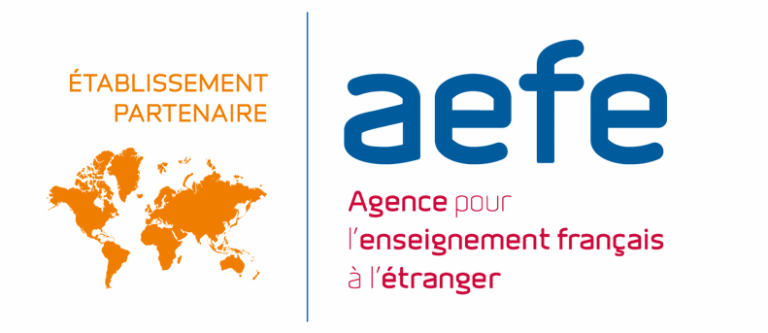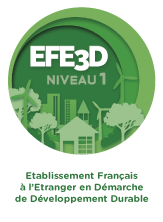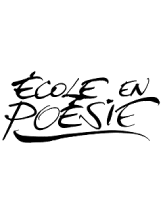Educational Policies
Please find below LIFT main guidelines.
These “education policies” provide information on the structuring choices regarding the pedagogy our education teams collectively thought through, approved and implemented everyday at LIFT. They enrich the pedagogical frame of a french institution abroad that aims to be accredited by AEFE, French education minister’s policies and guidelines and the taiwanese educational legal frame.
Focusing our efforts on the quality of learning is one of LIFT’s trademarks. We deliberately chose to dedicate the maximum of our resources to the quality of teaching, in its multiple dimensions.
This effort is defined, on the one hand, by the teamwork and the quality of our teaching teams, trained and experienced, and on the other hand by a constant dialog with the educational community, first and foremost pupils’ parents, coeducation actors. The line of force remains the principle of putting pupils’ well-being and kindness at the very core of our educational project.
In order to make these orientations happen, we focus on our teachers’ continuous training, cognitive and educational science research resources mobilization and a repeated work of identification of good practice and diagnosis conducted directly in class in order to answer the needs related to our context and our educational reality.
Our teachers benefit from a very important team dialogue time. Thus we answer above all the necessity to coordinate a trilingual teaching delivered by four teachers per class while guaranteeing the coherence of the offered pedagogical sequences, but also enrich our pedagogical approach of experiences, good practice and educational culture of our french, english and taiwanese teachers.
LIFT is a small establishment. We cherish this identity, as it offers so much freedom of thinking and individual offer, promptness of consultation, implementation and capacity of reaction.
These orientations are intended to evolve in time. First, because all the pupils’ parents are invited, as pupils’ parents’ UPLIFT association, to contribute with the teachers in order to elaborate these orientations. Then, and the health crisis demonstrated it, because schools in no way escape the challenges as well as opportunities and innovations, and must remain an agile and resilient institution.
Note on the fight against bullying at school
In line with the expectations of the French Ministry of Education, we consider the fight against all forms of bullying at school and more broadly, the establishment of a climate of kindness and safety among students as a top priority at LIFT.
We know that a child can only learn effectively when they are emotionally and cognitively available (cf. Maslow’s hierarchy of needs). Yet, intolerance, mockery, and intimidation even the most subtle forms can seriously disrupt the learning process.
Living together harmoniously and respecting differences are not always natural behaviors and must therefore be taught throughout a student’s schooling. To support this, LIFT is implementing a clear action plan:
1. Prevent bullying
Through regular sessions of civic education, class and student council meetings, and philosophical discussions, we aim to raise awareness and reflect on empathy and conflict management.
Participation in national initiatives, such as the “Say No to Bullying” competition, also helps to foster a culture of respect within the school.
2. Intervene effectively
By training staff and creating a protective committee of designated staff members who will ensure that cases are addressed and monitored.
While disciplinary actions may be taken in some situations to underline the seriousness of the behavior, our priority as educators remains the path of repair and support in helping students grow and learn.
3. Involve the parent community
Through the organization of workshops on tools and strategies used at school and the provision of a resource platform for both children and parents.
Digital citizenship awareness
Special attention will also be given to online behavior, with awareness sessions on digital citizenship and the risks of cyberbullying.
Note on assessments.
How do we assess students?
Understanding how to clearly and effectively communicate a student’s needs and progress is a complex task for any educator. At LIFT, we’ve chosen not to lose sight of the original meaning of the word “assess” to give value. This means that an assessment should help students become aware of their strengths and successes, while also identifying their needs and the path ahead in a constructive and encouraging way.
It is essential to teach children that learning is a journey with its ups and downs, doubts and joys during which they develop their skills and continuously open new possibilities.
To fulfill this educational mission, LIFT has implemented the following:
- Continuous assessment based on students’ daily work, to avoid relying solely on end-of-term tests, which often serve more as sanctions than learning tools.
- Active student involvement in the assessment process, through regular check-ins that encourage them to reflect on their learning path and articulate their progress and challenges.
- Transparent communication with parents, providing regular updates—not just once per trimester—on their child’s competencies, to foster meaningful dialogue within families. We firmly believe that strong co-education between parents and teachers leads to better academic outcomes.
Note on how you learn in a double-level class.
Teaching in a Multi-Level Class
A multi-level classroom can naturally raise questions or concerns among parents. However, this model is widely used in France and presents several advantages under certain conditions, as highlighted by recent studies: teachers must have experience and motivation in this area, class sizes should remain under 20 students, and the pairing of levels should follow a logical and pedagogically coherent structure.
How does it work in practice?
It is important to understand that a multi-level class does not mean that levels are mixed indiscriminately or that their specific needs are overlooked. On the contrary, each grade is taught with dedicated activities and exercises. In practice, when the teacher is interacting with one group to introduce a concept or provide feedback, the other group works independently until the teacher is available. It’s a balanced dynamic between autonomy and guided instruction. Even within the classroom, workspaces are clearly organized by level.
That said, students also come together for joint activities, especially in science and civic education, to foster a strong classroom community and encourage cross-level interaction. The paired grade levels are chosen deliberately, based on program alignment and coherence within learning cycles.
What are the benefits of a multi-level class?
- Encouraging student autonomy, self-management, and independent thinking
- Providing natural opportunities for revision and reinforcement
- Fostering social and emotional skills through peer tutoring
- Extending student potential by offering differentiated, multi-level activities
At LIFT, offering multi-level classes is a deliberate choice, not a constraint.
Note on homework.
LIFT: A No-Homework School
Based on our experience, the teaching team at LIFT has chosen to take a thoughtful and innovative approach to the issue of homework. In line with the “Devoirs faits” initiative launched by the French Ministry of Education in 2022 for middle schools, we believe that primary school should take full responsibility for organizing and managing review and practice time within the school itself, rather than shifting this essential task onto families—who may lack the time or the tools to properly support their children.
As a result, we have chosen to schedule a weekly hour dedicated to self-assessment, review, and repetition of acquired knowledge and skills (in other words, homework), as well as additional practice sessions at the end of each school day. These are designed to help all students review the concepts covered in class. We also identify students who may need further support and provide small group sessions with teachers to revisit and reinforce misunderstood notions.
We believe this system promotes personalized learning, allowing for targeted support that meets individual needs. It also ensures continuity and consistency in students’ learning paths.
Lastly, in keeping with our commitment to building strong connections between classroom learning and the home environment, we aim to be a school that provides resources rather than homework. The school-home link will therefore take the form of take-home kits with games and hands-on materials related to current classroom topics, stories to read, listen to or watch, as well as an online platform offering rich educational resources in French, English, and Mandarin.
Note on the role of reading at LIFT.
The Joy of Reading – Defending the Place of Books at LIFT
Reading was declared a national priority by the French Ministry of Education in 2021, with the aim of promoting and sustaining the simple pleasure of reading through various initiatives. This national emphasis resonates deeply with LIFT’s pedagogical approach. Convinced of the central role reading plays in all learning processes, our school has chosen to give it the time and space it deserves across all taught languages.
As highlighted by a PISA study, both reading proficiency and reading enjoyment are directly linked to academic success. Reading provides students with a deeper understanding of language and culture, stimulates creativity, increases concentration, and allows for encounters with new ideas and characters that expand their mental world. Unlike screen time, reading has been shown to activate the brain more deeply, developing neural networks that support more complex thinking.
LIFT also recognizes the importance of digital literacy and responsible use of social media, both of which are addressed starting in primary school. We believe in the educational value of digital tools when used strategically. However, we are equally committed to limiting screen exposure in consideration of students’ overall well-being, basing our practices on current scientific research in the field.
Note on communication between the school and parents.
Communication and Co-Education
As LIFT was founded from a shared vision and the collective needs of a group of parents seeking a multicultural and trilingual school in Taipei, it is only natural that our institution places great importance on the quality of dialogue within the educational community—first and foremost between parents and the teaching staff.
Our primary objective is to foster continuous and transparent communication between families and the school, alongside a shared understanding of the challenges and responsibilities on both sides, so that mutual trust can be established. After all, we are all working toward the same goal: the well-being and academic development of the children.
Experience and educational research consistently highlight the positive impact of parental involvement and strong co-educational partnerships on student success—especially in bilingual learning environments where students develop diverse skills and identities that benefit from coherent and supportive structures.
To support this ambition of an open and inclusive school, LIFT has put in place a number of initiatives to encourage collaboration and shared responsibility in the educational journey:
Parent–Teacher Meetings
- Early September: A group meeting to introduce the curriculum and teaching projects.
- Late September: Individual meetings with each family to share an initial learning profile of the student and discuss proposed strategies.
- Two formal meetings per year to review the student’s academic report and discuss their progress.
Communication Tools and Learning Progress Monitoring
- A weekly newsletter sent by email highlighting major learning milestones and project updates.
- Weekly return of student workbooks, allowing parents to follow the in-class work.
- Educational resources (games, books, media, etc.) shared with families to support current learning.
- Regular opportunities for parents to visit classrooms and participate in school activities alongside students.
Parents may request a meeting with the teaching team at any time by contacting our Pedagogical Director. Likewise, we may propose individual follow-ups with families as needed.
For pedagogical questions or matters concerning classroom life, parents may contact teachers by email. To protect personal time and manage communication flow, teachers are instructed not to use instant messaging platforms for communication with families. We ask that the Pedagogical Director be copied in all email exchanges.
Finally, throughout the year, we organize regular gatherings for the entire school community, including cultural and social events, both on and off campus.















